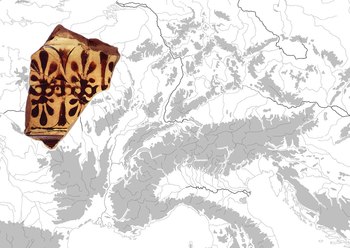Mediterranean import and its reception north of Etruria: Transfer of Ideas and Ideologies in a Contact Zone of the Mediterranean World, 7th-5th Century BC.

The research project deals with the question of the importance of Mediterranean imported goods for the process of cultural communication and acculturation between the peoples north and south of the Alps in the Hallstatt and early Latène period. The focus is on Greek pottery, which has been taken into account in the discussion so far, but which has never been treated in an overview with regard to the reception process. Spatially, the focus is on the zone north of the Po and the lower course of the Rhone. Mediterranean imports appear in increasing numbers in this area from the 7th century B.C. onwards and testify to the growing intensity of cultural exchange with the Mediterranean world. The project will use Greek pottery as an example to investigate the routes by which vessels were imported, whether and, if so, which filters influenced the selection of goods, who the recipients of the goods were, and what function the foreign objects had within the socio-cultural systems of the Iron Age cultures of the northern Italian and central European regions.
About the database:Attic pottery north of Etruria
Project Management:Prof. Dr. Martin Guggisberg (University of Basel), dott.ssa Simonetta Bonomi (Sorprintendente per i Beni Archeologici della Calabria, Reggio Calabria)
Collaborators: Lic. phil. Consuelo Keller (University of Basel)
Database design, data collection, online database, WebGIS, project homepage: Dipl. phil. Daniel Schuhmann (University of Basel)
Quick Links
